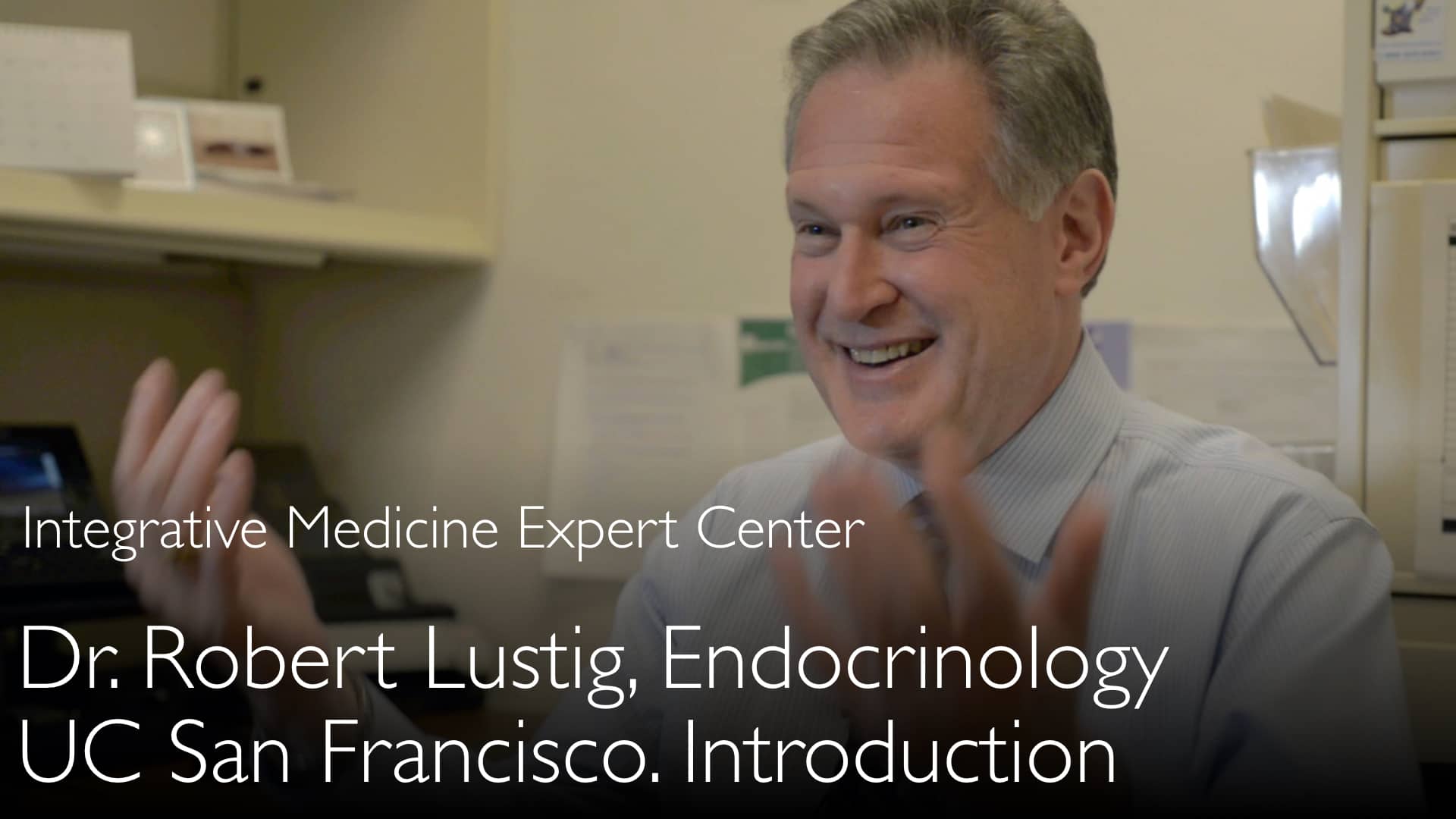Leading expert in neuroendocrinology and nutrition, Dr. Robert Lustig, MD, explains how sugar and processed foods impact metabolism and contribute to obesity and disease. Dr. Lustig details his extensive academic and clinical background, including his role at UCSF's WATCH Program, and discusses the central nervous system's role in regulating body weight. He highlights the addictive properties of sugar, a central theme in his bestselling books that aim to educate the public on making healthier dietary choices.
Understanding Neuroendocrinology, Metabolism, and the Impact of Sugar on Health
Jump To Section
- Expert Background and Credentials
- Neuroendocrinology and Metabolism Focus
- Clinical Role at UCSF WATCH Program
- Authority on Sugar and Processed Foods
- Educational Books and Public Outreach
- Full Transcript
Expert Background and Credentials
Dr. Robert Lustig, MD, possesses a formidable academic background that forms the foundation of his expertise. His education began with an undergraduate degree from the prestigious Massachusetts Institute of Technology (MIT). Dr. Lustig then earned his medical degree from Cornell University Medical College, a leading institution in medical training.
Further diversifying his knowledge base, Dr. Robert Lustig, MD, also holds a Master of Studies in Law from the University of California's Hastings College of the Law. This unique combination of medical and legal training informs his perspective on public health policy. His clinical training included a pediatric residency at St. Louis Children's Hospital, followed by a fellowship in pediatric endocrinology at the University of California, San Francisco.
Neuroendocrinology and Metabolism Focus
Dr. Robert Lustig, MD, is an internationally recognized authority in the field of neuroendocrinology. This specialty examines the intricate interaction between the nervous system and the endocrine system. His work has a specific emphasis on how the central nervous system regulates human metabolism, which is crucial for understanding weight and energy balance.
Dr. Lustig dedicated six years to advanced research as a postdoctoral fellow in neuroendocrinology at The Rockefeller University in New York. This intensive research period allowed him to delve deep into the hormonal and neural pathways that control appetite, satiety, and metabolic function. His research provides critical insights into the biological mechanisms underlying obesity.
Clinical Role at UCSF WATCH Program
Dr. Robert Lustig, MD, serves as a Professor of Pediatrics in the Division of Endocrinology at the University of California, San Francisco (UCSF). In this capacity, he is actively involved in patient care, research, and teaching the next generation of physicians. His clinical work is directly applied to helping children and adolescents with weight-related health issues.
He is the Director of the Weight Assessment for Teen and Child Health (WATCH) Program at UCSF. This specialized clinic is dedicated to the comprehensive evaluation and treatment of childhood obesity and its related metabolic complications. The WATCH Program takes a multidisciplinary approach to address the complex factors contributing to weight gain in young patients.
Authority on Sugar and Processed Foods
Dr. Robert Lustig, MD, is a leading voice on the detrimental health effects of sugar and ultra-processed foods. He has conducted extensive research on how fructose consumption, in particular, alters liver metabolism and promotes insulin resistance. His work highlights that calories from different sources are not metabolized equally by the body.
Dr. Lustig's research demonstrates that sugar has significant addiction potential, acting on the brain's reward centers in a manner similar to substances of abuse. This biochemical effect helps explain why reducing sugary food intake can be so challenging for many individuals. He argues that the modern food environment, laden with added sugars, is a primary driver of the global obesity and diabetes epidemics.
Educational Books and Public Outreach
Dr. Robert Lustig, MD, has translated his complex research into accessible knowledge for the public through his bestselling books. His New York Times bestseller, "Fat Chance: Beating the Odds Against Sugar, Processed Food, Obesity, and Disease," explores the science behind food addiction and the obesity pandemic. The book provides a compelling case for why societal changes are needed to combat diet-related disease.
He also authored "Sugar Has 56 Names: A Shopper's Guide," a practical tool to help consumers identify hidden sugars in packaged foods. During his interview with Dr. Anton Titov, MD, Dr. Lustig emphasized the importance of this consumer awareness. These works form a critical part of his mission to empower individuals with the knowledge to make healthier nutritional choices and advocate for better food policies.
Full Transcript
Dr. Anton Titov, MD: Hello from San Francisco, California! I am Dr. Anton Titov, MD. Today we are with Dr. Robert Lustig, MD, who is Professor of Pediatrics and Director of the Weight Assessment for Teen and Child Health (WATCH) Program at the University of California at San Francisco (UCSF).
Dr. Robert Lustig, MD, received his undergraduate degree from MIT (Massachusetts Institute of Technology) and his MD from Cornell University. He also holds a Master of Studies in Law degree from Hastings College of Law in California.
Dr. Lustig completed a pediatric residency at Saint Louis Children's Hospital and a fellowship at UCSF. After that, he spent six years as a postdoctoral fellow in neuroendocrinology at Rockefeller University in New York.
Dr. Robert Lustig, MD, is an internationally recognized authority on neuroendocrinology, with a specific emphasis on the regulation of metabolism by the central nervous system.
He is the author of the New York Times bestselling book "Fat Chance: Beating the Odds Against Sugar, Processed Food, Obesity, and Disease" and also "Sugar Has 56 Names: A Shopper's Guide." His books open our eyes to the addiction potential of sugar.
Dr. Robert Lustig, MD, thank you and welcome!
Dr. Robert Lustig, MD: Thank you so much for having me, Dr. Anton Titov, MD.





